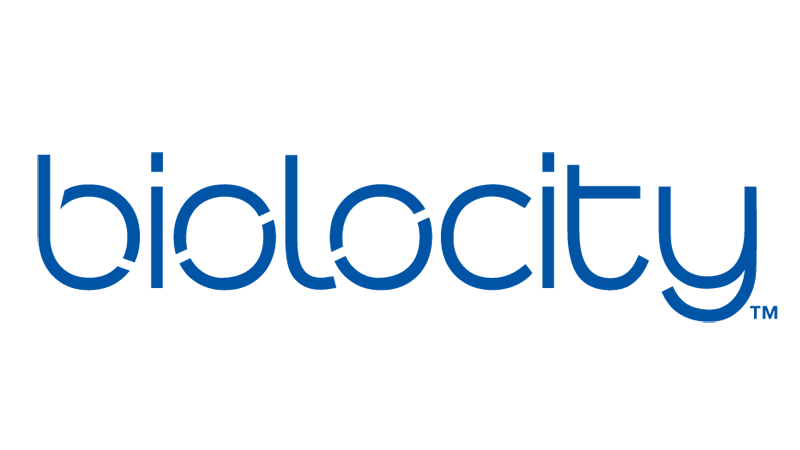What’s the real measure of research impact? To quote John Nicosia, the former interim managing director of Biolocity, “A researcher might consider their research to be impactful if they publish their findings in a prominent journal and receive 200 citations on their paper. But imagine the impact if their research was translated into a product that treated 200,000 people.”
That’s the goal of Biolocity: to find promising biomedical research in academia and supply those researchers with the resources, support, and tools they need to make their dreams of making an impact in medicine a reality.
Overcoming guidance and funding challenges for early-stage research
Research conducted at the university level is a valuable, yet often overlooked and underfunded resource, for burgeoning science and technology. There exists “a valley of death,” so to speak, for funding for early-stage research.

Image courtesy of Biolocity
Simply put, there are many supporting resources to begin research, and there is a plethora of venture capitalists and angel investors who will provide funding for product development. However, funding and support become scarce for research projects as they enter the middle phase of the process: early-stage research and development. For the lucky few who secure funding by way of research grants, they still must navigate the trials and tribulations of developing their research into a marketable product. For biomedical research, this means obtaining approval from the FDA, procuring intellectual property, securing further funding from investors, and more. The entire process, which can take many years, can be a great burden for the researchers.
Fortunately, for researchers at Georgia Tech and Emory University, there is a program that supplies innovators with resources and expertise to move through the valley of death to get their amazing science and technology out of the universities: Biolocity.
Guiding medical innovation to market
Biolocity is a philanthropic accelerator program that acts as a guiding hand to expedite the entrepreneurial process and alleviate the strain on the researchers. Biolocity is “guiding medical innovation to market,” says Nicosia.
The program provides non-dilutive funding for its sponsored projects (about five to six teams per year), meaning it donates funding for the research teams without taking equity.
Biolocity doesn’t assist these research teams with the hopes of turning a major profit; they provide resources because the teams’ products can help more people than their research papers. By taking a hands-on approach to assist the teams with their product development, Biolocity gives the projects a comparative advantage in the extremely competitive biotech market.

In addition to providing funding for 12 to 18 months, Biolocity provides further resources, including but not limited to:
- consultation resources
- project management
- a variety of tools to aid in research, financial management, and entrepreneurial strategizing
These resources, tools, and skills help the research teams in their entrepreneurial ventures, ensuring they have an advantageous start and increasing their odds of later success. By giving these research teams the opportunity to thrive even after leaving the program, Biolocity is fostering a new world of innovation right here in Atlanta.
Feeding Atlanta’s innovation ecosystem
Atlanta’s biotechnology innovation community has, in recent years, expanded dramatically. The innovation ecosystem has gotten stronger and more productive, and Biolocity is a feeder program for the entire ecosystem.
While the risk factor of a start-up is always high, Biolocity works to mitigate the risk to a manageable level through a pipeline of de-risked projects that can support–or be supported by–other start-ups. This leads to an overall more productive innovation ecosystem. The collaborative environment leads to an overall greater network of innovators and is one reason Biolocity is a key component of the brilliant innovation ecosystem here in Atlanta.
That said, Biolocity doesn’t solely provide resources for its chosen few; they also provide educational resources for the whole Emory University/Georgia Tech community. Their Bench2Market program is a monthly talk series that covers commercialization topics outside of exclusively technology.  For instance, members of the university community can learn about topics like regulations, intellectual property, and other concepts that can help the attendees grow their ideas and start-ups. Another prominent program they offer in cooperation with the Emory University School of Medicine is the Lab2Launch program, which “provides flexible and low-cost co-working and wet laboratory space to local start-up companies developing promising technologies for the benefit of human health.” Biolocity also has internship programs for graduate and postdoctoral students, and it offers coaching programs to further educate innovators on the technology commercialization process.
For instance, members of the university community can learn about topics like regulations, intellectual property, and other concepts that can help the attendees grow their ideas and start-ups. Another prominent program they offer in cooperation with the Emory University School of Medicine is the Lab2Launch program, which “provides flexible and low-cost co-working and wet laboratory space to local start-up companies developing promising technologies for the benefit of human health.” Biolocity also has internship programs for graduate and postdoctoral students, and it offers coaching programs to further educate innovators on the technology commercialization process.
Biolocity already has several success stories, and many more projects are currently in development under the program. One successful product is the Dr. NozeBest “NozeBot,” a battery-powered suction device designed to clear nasal congestion in babies and small children, which was developed by Steven Goudy, MD, of Emory University. Thanks to Biolocity and the hard work of researchers, the lives of people all over the world can be improved with the application and implementation of university science and technology. That’s impact.
— Jenna Woods